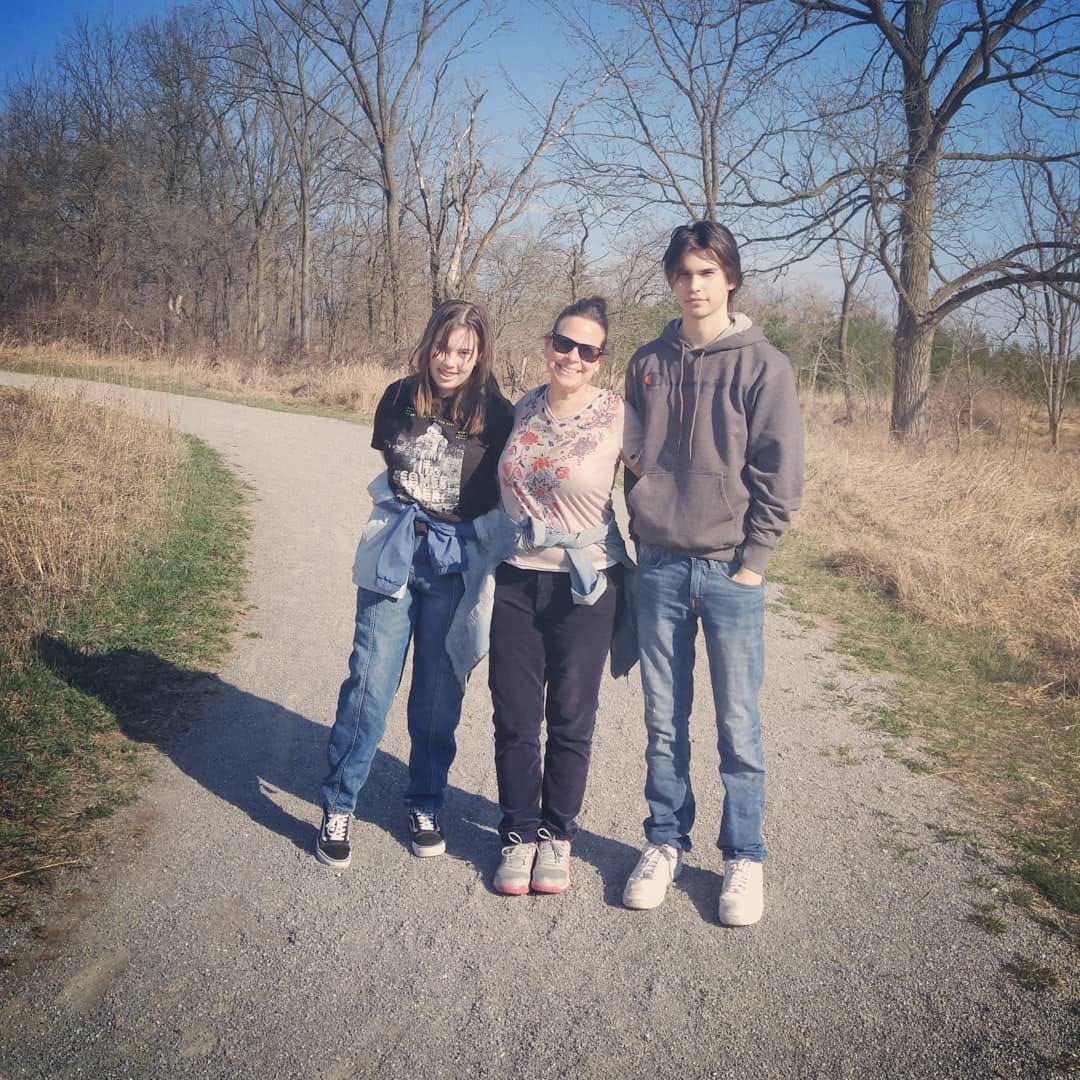In the perfect world, every minute/day/ week we’d be taking care of our health. But, as we all know, that’s not always possible.
If we’re mothers – or even if we’re not – as women, we often put everyone else first. (That’s just how we’re wired, right?) Consider National Women’s Health Week a gift; a reminder-of-sorts to Put. Your. Health. First.
Hi Pausers! Hope you all enjoyed your Mother’s Day, whether you are a mother, have a mother, a sister, a friend, a niece or assorted others that you celebrate.
Sheryl. Lisa, is Mother’s Day a thing in Canada, too?
Lisa. It sure is, Sheryl. While it’s held on the same day here in Canada, I believe Mother’s Day takes place on a different date in the UK (and possibly in other countries too – readers?).
While I didn’t have high hopes that my kids would step up - good news! - they did! They both surprised me with small but thoughtful gifts and we spent some quality time together. Mothering is such a massive responsibility and small doses of love are very much appreciated.
Sheryl. Yes we love those small (and big!) doses of love.
Mother’s Day always coincides with my hubby’s birthday, so we’re kind of at a standoff on who does the work. This year I decided we’d both do it, and we invited our two sons and their significant others plus the grand-babies to brunch. (My son Jonathan, on the left, is the daddy of the twins, Charlie and Oliver. Uncle Jeremy is holding Oliver.)
Lisa. Sounds lovely, Sheryl (a lot of work on your and your husband’s part but lovely none-the-less!).
So, now, let’s bring you to what brought you here in the first place: National Women’s Health Week.
Riding the Continuum: From Maternal Health to Menopause
For 2022, the U.S. FDA Office of Women’s Health is focusing on maternal health. Which is all well and good, but since most of us here are past that age and find ourselves (how did we get here??) at a different phase of life, we want to focus on menopause health.
Maybe one year that will be the FDA’s focus? We can only hope. Menopause deserves to come out of the closet; but that’s a story for another time…
What’s different about our health at this point in our lives?
A lot.
The transition to menopause (perimenopause) can begin many years before your period actually stops; for some women it can be as long (or longer) than four years. That’s when estrogen and other hormones begin their decline. For most women, this occurs around their mid-forties, but it can start as early as your 30s. Here’s how to know if you’re in perimenopause.
Hormonal declines before, during and after menopause affect so many aspects of your health and can raise your risk for certain health problems. Which brings us to offering you tips on how to take care of yourself. You know those common reminders you’ve probably heard? It’s time to pay attention to them, especially now:
So, here’s yet another reminder from your friends at thePause:
Eat a healthy diet;
Focus on maintaining a healthy weight;
Exercise every day; prioritize sleep;
Reduce stress as much as possible.
We’ve Got 99 Problems and Heart Disease is One of ‘Em
Issues, yeah, we got issues (who doesn’t?). But, if we stay on top of them, hopefully they will be little ones and not grow into big(ger) ones. Here are insights from thePause on six of the big kahunahs for women in midlife:
Heart disease. Prior to age 55, our risk of heart disease is lower than men’s. That’s due to estrogen’s positive effect on blood vessels; keeping them open and relaxed, which also helps our bodies maintain a good cholesterol balance. Once estrogen declines though, cholesterol can climb. By around age 70, our risk for heart disease is equal to men of the same age.
Stroke. For each decade after age 55, our risk of stroke doubles (yeesh!). One reason could be the lower levels of estrogen, which can cause cholesterol to build up on artery walls leading to our brain.
Osteoporosis. Watch for falls and breaks (most commonly in the hip, wrist or spine): Our bones get brittle and weak and can break easily. Make sure you’re up-to-date on your bone density scan.
Urinary incontinence. Lower levels of estrogen can weaken your urethra, making it hard to hold in urine, or causing other bladder issues.
Sleep. Falling asleep, staying asleep, getting enough sleep. These are popular complaints. Here’s our take on snooze control.
Our mouth. Why an increased risk of cavities, of all things? Two words: Dry Mouth. Again, blame estrogen for making your mouth (and other areas of the body) drier with less saliva production, which can lead to the growth of bacteria and even cause your gums to bleed or recede.
And so…
🩺 Keep up with your regular check-ups and tests, which include: 🩺
Mammograms
Pap tests
Height measurements
Blood, urine and other tests (to screen for risk of diabetes and heart disease)
Blood pressure
Cholesterol
For a Pause…
1. Sharing is Caring: Cooking Light’s healthy version of overnight French toast that was one of the dishes - a big hit! - I made for Mother’s Day.
2. Cue to Bamboo: Love these bamboo cooling pj’s I recently purchased from Amazon. (Even though I’m done with hot flashes, I’m still a “hot” sleeper.) They’re cute, affordable and effective!
3. Queen Bee: Did Queen sing, Mama, it’s Menopause? Not exactly, but these women do Bohemian Rhapsody justice.
4. Pause Your Scrolling: In our last issue, I (Lisa) mentioned my love of the Freedom app to block certain sites and/or social media networks. Here’s our affiliate link if you’re interested in purchasing a subscription (as mentioned, I feel it’s worth every cent!)
A shoutout to one of our readers:
Thank you so much to reader Rebecca for sending us this fascinating study regarding the impact of diet on menopause symptoms (which she sent to us after reading our article on soy and hot flashes).






